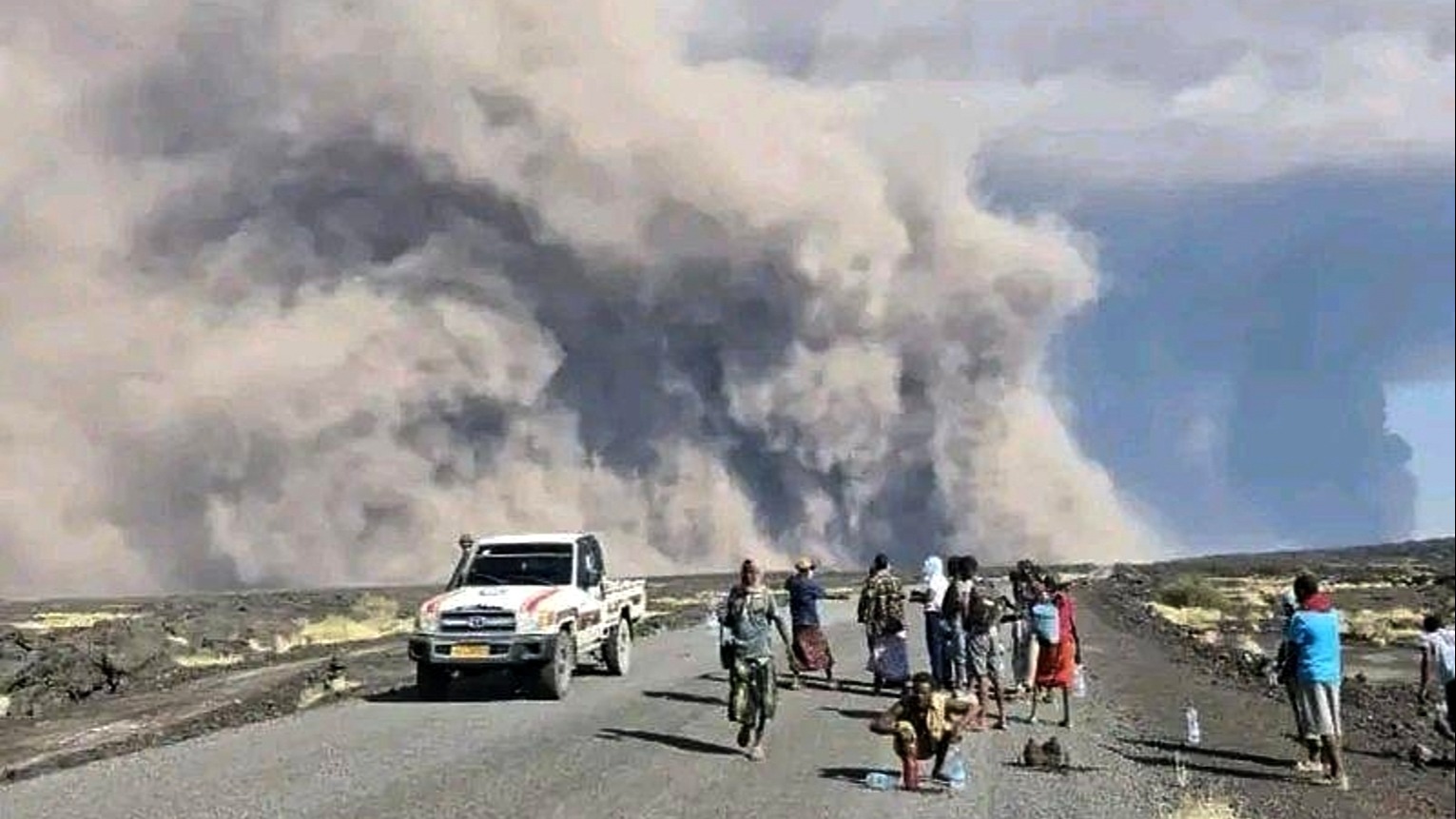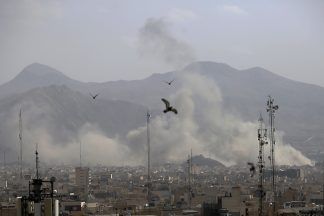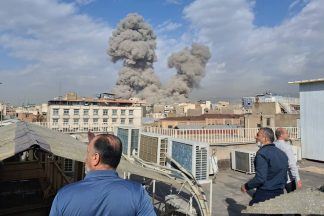Ethiopia’s Hayli Gubbi volcano has erupted for the first time in recorded history
A volcano in Ethiopia has erupted for the first time in recorded history, releasing plumes of thick smoke and ash into the sky.
The long-dormant Hayli Gubbi volcano in the Afar region erupted on Sunday, covering neighbouring villages in dust.
The Smithsonian Institution’s Global Volcanism Program says there is no known record of Hayli Gubbi erupting during the Holocene period (the geological period which began roughly 12,000 years ago).
Elsewhere, volcanic ash swept across the Red Sea, through Oman and Yemen into India and Pakistan, according to the Toulouse Volcanic Ash Advisory Centre, causing flight disruption for many.

Airline Air India cancelled several international and domestic flights to carry out “precautionary checks on those aircraft which had flown over certain geographical locations after the Hayli Gubbi volcanic eruption”.
Airline IndiGo said it was “closely tracking the situation in coordination with international aviation bodies”.
Pakistan’s Meteorological Department has issued a warning to aviation services as ash from the eruption makes its way towards the country.
Flightradar24 said that the ash cloud is beginning to move east.
In Ethiopia, there were no casualties according to local administrator, Mohammed Seid, but the eruption could have economic implications for the local community of livestock herders.
Mr Seid told the Associated Press that there was no previous record of an eruption by the Hayli Gubbi volcano, and that he fears for the livelihoods of residents.
“While no human lives and livestock have been lost so far, many villages have been covered in ash, and as a result, their animals have little to eat,” he said.
Follow STV News on WhatsApp
Scan the QR code on your mobile device for all the latest news from around the country






























